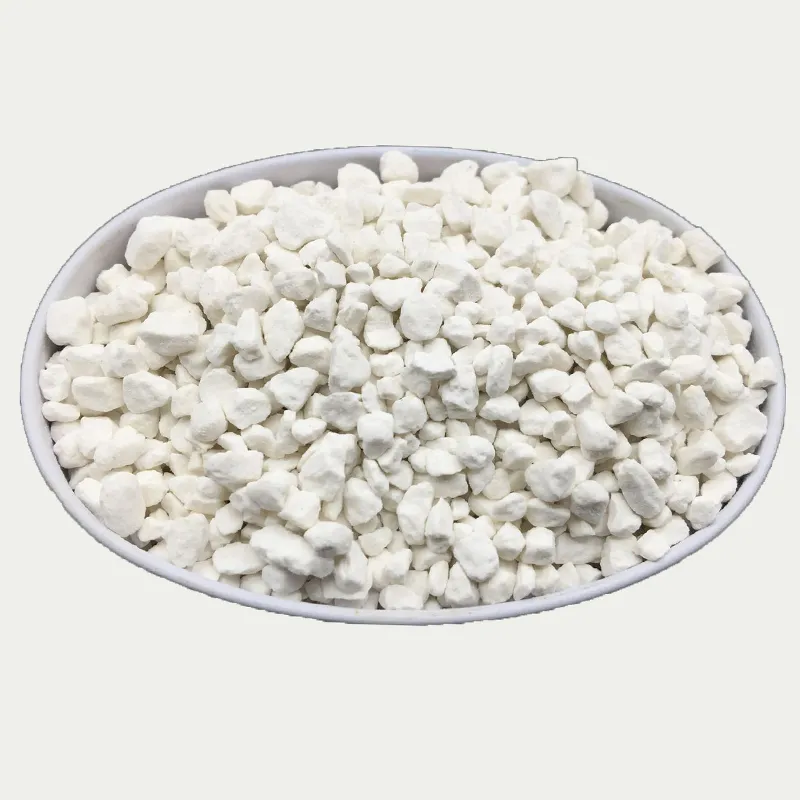
سبتمبر . 09, 2025 15:39 الرجوع للقائمة
Boosting Agricultural Output with Bulk Potash Fertilizer Solutions
In the pursuit of higher yields and improved crop quality, the agricultural industry consistently turns to effective nutrient management strategies. Among them, bulk potash fertilizer remains one of the most essential tools for supporting plant health and productivity. Rich in potassium, potash plays a crucial role in regulating plant metabolism, improving drought resistance, and enhancing nutrient transport. As farmers increasingly prioritize soil balance and output efficiency, the demand for bulk potash fertilizer continues to grow worldwide.

Understanding the Role of Potash Fertiliser in Crop Growth
Potash fertiliser refers to a group of potassium-rich products used to improve the availability of this vital nutrient in the soil. Potassium is indispensable for various physiological functions in plants, including water regulation, enzyme activation, and photosynthesis. Unlike nitrogen and phosphorus, potassium does not form part of plant structure but acts as a catalyst that enables other nutrients to function effectively.
When applied correctly, potash fertiliser strengthens plant stems, enhances resistance to diseases, and increases tolerance to environmental stress such as heat and drought. It also contributes to improved flowering, fruiting, and the overall quality of harvested crops, making it an integral component of modern fertilization programs.
Why Bulk Potash Fertilizer Is the Smart Choice for Large-Scale Agriculture
For commercial growers and distributors, sourcing bulk potash fertilizer ensures cost-effective and uninterrupted nutrient supply throughout the growing season. Bulk purchasing allows for customized blending and application planning, especially for high-demand crops such as corn, wheat, cotton, and soybeans that rely heavily on potassium for optimal growth.
Moreover, bulk potash fertilizer minimizes logistical disruptions by enabling centralized storage and scheduled deployment across large plots. This efficiency not only supports yield consistency but also reduces per-unit input costs, which is vital for maintaining profitability in large-scale farming operations.
Benefits of Potash Based Fertilizer for Soil and Plant Health
Potash based fertilizer does more than feed plants—it rejuvenates the soil by restoring potassium levels depleted through intensive cultivation. In potassium-deficient soils, plants often show stunted growth, poor root development, and lower resistance to drought and pests. Regular application of potash-based fertilizers helps reverse these deficiencies by enriching the soil's nutrient profile.
Additionally, potash based fertilizer supports microbial activity and organic matter stability in the soil. By improving water uptake and protein synthesis in plants, it indirectly reduces the need for excessive irrigation and chemical pest controls. These benefits make it a preferred choice for sustainable agriculture practices that seek to balance productivity with environmental care.
Where to Source High-Quality Bulk Potash for Sale
As global agricultural production scales up, the market for bulk potash for sale has expanded significantly. Reputable suppliers typically offer a range of formulations, including potassium chloride (MOP), potassium sulfate (SOP), and other specialized blends suitable for specific crop and soil needs. When selecting a supplier, factors such as purity level, granule size, and solubility are key to ensuring the effectiveness of the fertilizer.
Choosing bulk potash for sale from trusted distributors ensures not only product quality but also consistency in nutrient content. Many suppliers now also offer value-added services like nutrient testing, application guidance, and delivery logistics, helping farmers make informed decisions and maximize return on investment.
Maximizing Return Through Strategic Potash Fertilizer Application
Applying potash fertiliser strategically—based on soil tests, crop type, and growth stages—can significantly enhance its impact. Pre-planting incorporation into the soil allows potassium to integrate into the root zone, supporting early plant development. Foliar feeding and side-dressing during key growth phases further optimize nutrient absorption.
Combining potash fertiliser with other macro and micronutrients in balanced formulations allows farmers to address multiple deficiencies at once, leading to comprehensive plant nutrition. This integrated approach results in stronger plants, reduced crop loss, and higher marketable yields—particularly important in commercial export markets that demand consistent product quality.
Potash fertilizer FAQs
What crops benefit most from bulk potash fertilizer?
Many staple and cash crops—including corn, soybeans, cotton, and potatoes—respond well to bulk potash fertilizer, showing increased yield, improved root strength, and greater resistance to environmental stress.
How does potash fertiliser improve drought resistance in plants?
Potash fertiliser enhances water-use efficiency by regulating stomatal function and osmotic balance in plants, making them more resilient under water-limited conditions.
What should I consider when buying bulk potash for sale?
When purchasing bulk potash for sale, evaluate the purity, solubility, and formulation type (such as MOP or SOP) to match your specific crop and soil needs.
Is potash based fertilizer suitable for organic farming?
Certain potash based fertilizer types, like potassium sulfate derived from natural sources, are approved for organic farming and support both productivity and soil health.
How often should I apply bulk potash fertilizer during the growing season?
The frequency of bulk potash fertilizer application depends on crop type and soil test results, but it is typically applied once before planting and supplemented during critical growth stages for best results.
-
Organic Pepper Fertilizer – Sustainable Growth for Healthier Crops and Soils
أخبارNov.25,2025
-
Sustainable Growth with Organic Phosphate Fertilizer | Benefits & Innovations
أخبارNov.24,2025
-
Organic Phosphorus and Potassium Fertilizer: Sustainable Soil Nutrition & Global Impact
أخبارNov.24,2025
-
Organic Phosphorus Fertilizer: Sustainable Nutrient Solutions for Modern Agriculture
أخبارNov.23,2025
-
Sustainable Growth with Organic Phosphorus Plant Fertilizer | HH Fertilizer
أخبارNov.23,2025
-
Organic Plant Meal Fertilizer for Sustainable Agriculture – Benefits & Innovations
أخبارNov.22,2025
